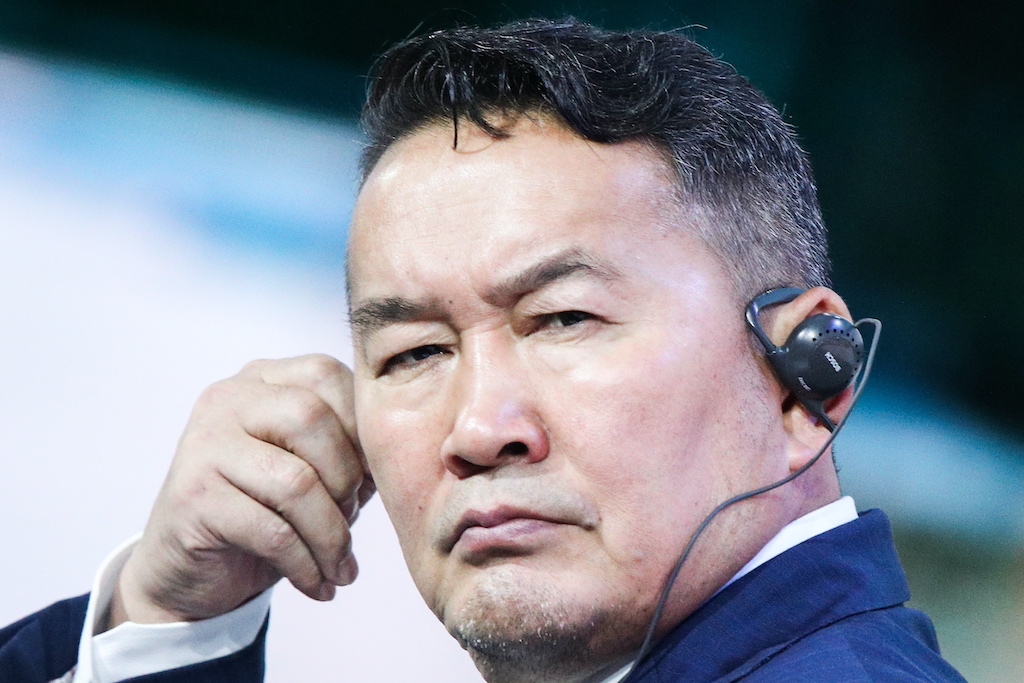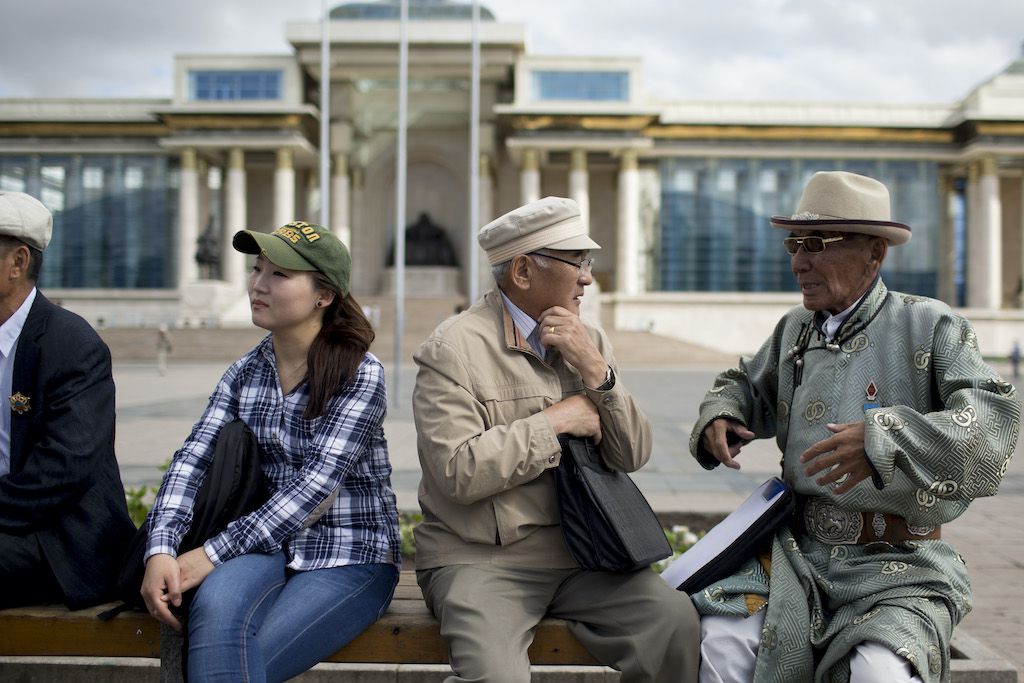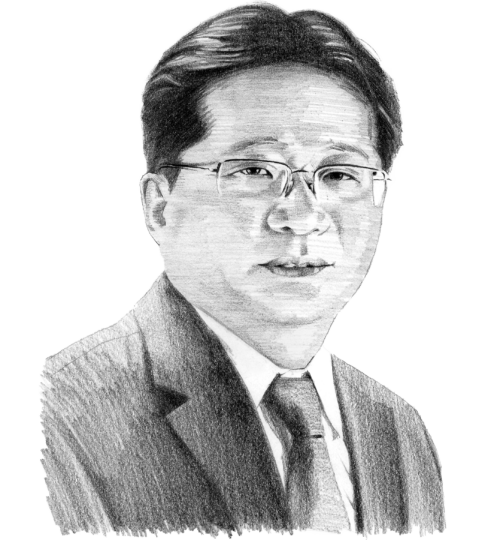Mongolia faces a crisis in its democratic development
A recent constitutional amendment bars Mongolia’s president from running for a second term in 2021. In response, he has moved to delegalize the ruling political party. The crisis threatens Mongolia’s democracy and may undermine its geopolitical standing.

In a nutshell
- After decades of development, Mongolia’s democracy has hit a snag
- Mongolia's president is trying to rig the system in an autocratic fashion
- Poorly operating political parties are the weakest link in overcoming the crisis
On April 19, 2021, Mongolia’s outgoing president Khaltmaagiin Battulga issued a directive to dissolve the Mongolian People’s Party (MPP). The move is blatantly unconstitutional.
Mongolia is a parliamentary republic where the president, elected by popular vote, acts more like an upper chamber than an executive in a presidential republic. Dissolution of the MPP, if it were to take place, would disenfranchise voters and disrupt democratically elected institutions across the country. Since the 2020 elections, the party holds slightly more than 80 percent of the seats in the national parliament (the State Great Hural) and has a majority in most local councils. The party similarly scored a landslide win in 2016 elections.
In my October 2017 report, I warned that Mongolia appeared to be riding the same wave of public discontent as many advanced Western democracies, and unless its political class measured up to the challenge, populists and authoritarians might steal its future. This is precisely the danger that the country faces now.
Ban on reelection
The president issued the party-dissolving directive just three days after the Constitutional Court ruled that in accordance with the amendments to the Constitution of May 25, 2020, all former and the sitting presidents are ineligible to run for office again. The amendments were adopted in November 2019 by the parliament. One of them stipulates that the president is elected for “a single term only” of six years.
The court’s ruling effectively bars President Battulga from participating in the 2021 presidential race.
President Battulga participated in the confirmation of the amendments in a public ceremony on November 26, 2020 – the day that commemorates the adoption of Mongolia’s first Constitution in 1924. A minor group in the parliament, the National Labor Party, asked the Constitutional Court to clarify that “a single term only” meant that anyone who was a president had no right to run again, which the court has affirmed.
Facts & figures
Mongolia’s Constitution
- The latest Constitution is in effect since February 1992. It laid out a division of power that went beyond the usual checks and balances. Executive and law enforcement powers were distributed among many branches of government to prevent excessive influence. As a result of this precaution, Mongolia is the only country in Central Asia that consistently held free elections over the last 30 years, and that did not slide back toward strong-man politics or one-party rule.
- The latest constitutional amendments were in 1999, 2000, 2019
- Amendments are proposed by the State Great Hural (parliament), by the president of the republic, by the government, or by petition submitted to the State Great Hural by the Constitutional Court
- Conducting referenda on proposed amendments requires at least two-thirds majority vote of the State Great Hural
- Passage of amendments by the State Great Hural requires at least three-quarters majority vote
- Passage by referendum requires majority participation of qualified voters and a majority of votes
Source: CIA, GIS
The court’s ruling effectively bars President Battulga from participating in the June 2021 presidential race. Aggravated as he seems by the ruling, the president made his move and accused the MPP of being a “militant” party “capable of undertaking military actions.” He demanded that the Supreme Court, which registers political parties, hear his argument and expressed his intention to meet its judges in the court’s chambers. Both demands have the marks of illegal interference in the judiciary branch’s decision-making.
The follow-through
After issuing his directive, the president reportedly visited the headquarters of the chief of staff of the armed forces. A day later, in a rare public appearance, Major General Dovchinsurengiin Ganzorig confirmed the president’s visit. While stating that the armed forces would fulfill lawful orders, his remarks were largely understood to mean that the army would stay out of politics. However, parts of the general’s statement, such as his charge that an open hearing in the parliament “revealed state secrets,” perplexed some commentators not accustomed to any sort of public pronouncements by the military.
On the very same day that the president made his announcement, the Democratic Party’s (DP) splinter group, controlled by President Battulga, signed a contract with a Washington, D.C.-based public relations firm called DCI Group. The contract soon became public knowledge in Mongolia, along with the firm’s e-mails to the media and its registration with the United States Department of Justice as a foreign agent acting on behalf of the DP. The paper trail shows that the president’s attempt to eliminate Mongolia’s largest political party had not been a spur-of-the-moment decision.
The e-mails describing the directive as “the emergency action by President Kh. Battulga to safeguard the country’s sovereignty and democracy in the face of threats from the Mongolian People’s Party (MPP)” were distributed by DCI to the media, including such mainstream heavyweights as the Washington Post, only one day after the president announced his move domestically. DCI offered journalists “the opportunity to speak directly with the President,” and news items published in some outlets pointed to the president’s office as the primary source.
Hiring a major Washington PR company is not done in one day, and such services cost significant amounts of money. The fact that his office acted with such premeditation and the phraseology used in the DCI’s releases indicate the president’s determination to shape the opinion abroad and locally in a very slanted way, are eerily reminiscent of autocratic propagandistic practices.
Parties under attack
The government and the MPP (which celebrates its centenary this year as the only former ruling communist party to make a transition to the social-democratic platform and remain competitive in a multiparty democracy) reacted to the president’s moves in a restrained and low-key fashion. The MPP’s governing council issued a statement demanding that unconstitutional acts cease, and the president uphold the law.

Neither the MPP parliamentary majority nor the government it leads has spoken. While the legal grounds for the president’s impeachment are apparent, the parliamentary majority has not raised this topic. The reaction suggests that the MPP wants to present itself to the voters as remaining focused on fighting the Covid-19 pandemic rather than political shenanigans ahead of the elections.
From the beginning of 2021, a dramatic increase in SARS-CoV-2 infections pushed Mongolia into a lockdown. The government is pressing ahead with an all-out vaccination drive. As of this writing, about 80 percent of the adult population have been inoculated, one of the highest rates globally. The government expects to finish the process by the end of June or even earlier, depending on the availability of vaccines. That would be a considerable achievement for a country that neither produces vaccines nor has a strong negotiating position to acquire them.
Despite their many weaknesses, the parties are critical to preserving Mongolia’s democracy.
The MPP and its government have rejected the narrative pushed by President Battulga. For the June 9 elections, the party has nominated Ukhnaa Khurelsukh, its chairman. The three-decade-old DP, on the other hand, is in deep disarray. After a devastating loss in the 2020 parliamentary balloting, the president’s party split into two groups. They nominated two candidates for president, which has thrown the DP into a severe legal crisis. It needed a judge to decide who the party’s “legal” candidate is.
The divide, however, is not merely political. It exemplifies the most crucial challenge that democracy in Mongolia is facing: reform of the judiciary and law enforcement. While the president’s protege leads one group within the DP, the other leader is strongly opposed and issued a statement condemning Mr. Battulga’s interference in party affairs. He also accused the president of trying to wrest the party’s chairmanship away from him by repeatedly bringing trumped-up criminal charges against him. The sordid story purports to show the undue influence the president has over the judiciary and law enforcement and uses against political opponents and business competitors.
Political parties’ maturity issue
The future of Mongolia’s democracy may depend on the outcome of these events. Thus far, its political parties have proven to be the only institutions taking a firm stand against a president leaning toward autocracy. Despite their many weaknesses and low public approval ratings, the parties are critical to preserving Mongolia’s democracy. However, the very fact that such autocratic tendencies were allowed to come to the fore is emblematic of the considerable challenges faced by the parties that nominate those who reach for power.
Several changes need to be introduced (such as transparent financing of parties and elections, fact-based policy debates, exposure to global issues, to mention just the major ones) to make Mongolia’s political parties cohesive and constructive political forces. Today, they mostly resemble constellations of political and business factions.
Also, it is apparent that the long-used benchmark of three free and fair elections as a measure of the stability of democratic institutions in a country no longer suffices. Aside from competitive elections, the presence of stable institutionalized parties should be required to assume a successful transition. The lack of such parties leads to personality politics that are bound to pose a threat to democracy eventually.
This mechanism is at work in Mongolia now. After eight parliamentary and seven presidential elections, the country is faced with a challenge like never before in its 30 years of democracy-building. While the probability that autocratic tendencies would prevail seems small, the challenge is real. From this perspective, Mongolia has a long way to go before it could call itself a stable democracy. Also, the health of DP as a significant political force, or whatever group comes to replace it as a counterbalance to the MPP, is critical to the overall strength of democracy in the country.
Regional impact
There is also a regional aspect to this drama. Events in Mongolia are not unfolding in a vacuum but in the context of Central Asia and some former Soviet republics. In Kyrgyzstan, a referendum has taken place, and the country is now reverting from a mixed presidential and parliamentary republic to a presidential republic model. Armenia is also moving toward a presidential republic amid the conflict between the current prime minister and the opposition. In Ukraine and Georgia, despite the transition to mixed parliamentary-presidential systems, parties are still weak and dominated by single leaders, which erodes the overall democracy and makes any progress fragile.
Mongolia derives its current favorable geopolitical position from its location and adherence to democratic values.
Mongolia’s success in tackling the current crisis would send an important signal through the neighborhood. It would show the country’s parliamentary system with the president acting as an upper chamber, powers divided among key institutions, freedom of the press and focus on judiciary and law enforcement reform, and public service as a workable model for democratic transition. For this scenario to materialize, Mongolia’s political parties need to reform and mature to guarantee the survival of democracy and prevention of concentration of power in one person.
Scenarios
On the one hand, given Mongolia’s location sandwiched between Russia and China, its power of example could be relevant to the immediate Central Asian neighborhood and the former Soviet republics. However, the geopolitical import of the recent events is mainly significant for the country itself.
On the other hand, the current government’s successful “vaccine recipient diplomacy” is exemplary for much of Northeast Asia. Mongolia’s major vaccine supplier is China. The vaccination drive started with announcing a large vaccine donation by India and the Covax program funded by the EU. Russia donated a shipment of its Sputnik-V product, and Japan announced a significant financial contribution toward vaccine purchases.
As evidenced by this vaccine recipient diplomacy, the country’s geopolitical importance for its immediate geographic neighbors will remain self-proclaimed. Its so-called “third neighbors” such as the U. S., Europe, India and Japan define their relations with Mongolia based on shared values of democracy and human rights. Any backsliding in Ulaanbaatar will adversely affect the cooperation with them.
Mongolia derives its current favorable geopolitical position from its location and adherence to democratic values. However, while the location remains set, values can change – as could the country’s attraction to the rest of the world.








